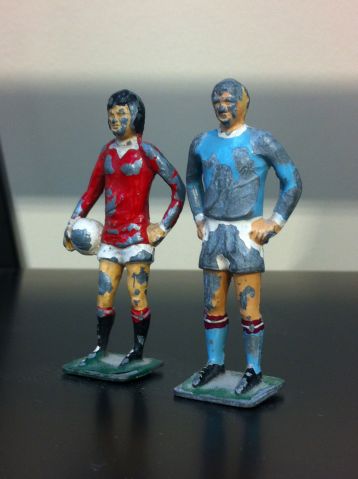Once again I’ve found myself appreciating being part of a community via Artists Talking. Being partially deaf, it’s infinitely easier for me to communicate in writing. Listening requires a lot of concentration, I often miss quite a bit of any given conversation and I get very tired. There are a whole host of other complications that come with not hearing properly, too complex to go into here but when life around me starts feeling a bit frenetic and a little too fast paced, immersing myself in what other artists are up to feels like a good place to be.
I received an email from someone I know recently who described the art world as one ‘where it seems like everyone is talking at once and no body is listening.’ That really struck a chord with me. It’s true of many professions, I think but maybe the sense of urgency around being seen and heard has become more pronounced in an ever increasing climate of cutbacks and fewer art opportunities. Reading and getting absorbed in other artists’ blogs means that I’m able to process and respond to what’s being said at a pace and in a way I feel more comfortable with – ie. in a slower and more considered way. I gain a lot from it.
Another thing that resonated with me this week was something that Stuart Mayes posted on his blog ‘Project Me.’
My ‘work’ as an artist is hard to define (not what I produce, I mean all the things that I do that sustain my practice), many of these things are ‘soft’ and informal and sometimes I get something back (rarely money!) but it is all work. And I am very glad to be able to think of myself as a working artist!
The work is hard to define – having come from a working background where job descriptions clearly outlined the role and responsibilities you had as an employee, I’m acutely aware of how open-ended our work as artists can be and how the hidden aspects of what we do can be largely ignored – the ‘soft and informal things’ as Stuart calls them.
On a more personal level, a recent conversation with my Mum highlighted precisely how hard it is for me to define what I actually do – what constitutes ‘work’ in the good old-fashioned sense of the word. My Mum recounted a conversation she’d had in which she’d been talking about her two daughters – one who ‘worked very hard as a social worker’ and the other who ‘didn’t work.’ I’m the latter one – the one who doesn’t work, while my sister is a social worker – has a ‘proper’ job as my Mum called it.
My Mum’s comments came after I’d just completed a particularly intense week of work – preparing for a show, delivering work for another and attending that gallery’s Sunday afternoon launch, joining in on my first ever East London art tour, visiting exhibitions before they close, supporting another artist and answering questions for three different interviews, all of which required some pretty in depth thinking. So I was really taken by surprise to be described as a person who didn’t work.
I’m in no way suggesting that my work is harder than my sister’s; I’m acutely aware of the imbalance of responsibility between what she does and what I do. There are life and death issues in her work and I know from my own past work experience in social care that the workloads can be vast and feel unmanageable at times; chronic stress seems to go with the territory. But whatever it is that I do (and don’t) as an artist, I feel 100% committed to my art practice and dedicate as much time as I can to it. And essentially, I think of myself as someone who works. I’ve been thinking a lot about what my Mum said and why she might have said it – but that’s another whole post I think.


